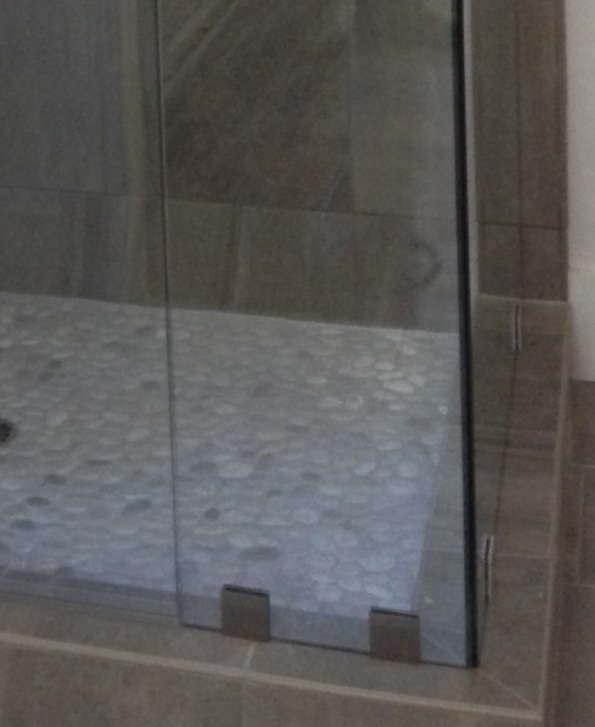To Silicone, or not to Silicone?
Good afternoon!
I’m hoping you can shed some light for me. We are in the final days of finishing our new home with our semi-custom builder in Oklahoma.
We paid quite a bit in the beginning to upgrade our standard shower door to a 3/8 inch frameless shower door to avoid the build up of mildew and mold through the years on the silicone. The frameless shower doors I’ve always seen have just the brackets and hinges on the sides of the door as well as the side and base of the panel. They initially installed a semi-frameless door with a partial frame on the panel. They immediately ordered a new panel when I pointed out that it wasn’t frameless. I also addressed the silicone concern with the superintendent of our build and he said the silicone would all be cleaned up. Well they installed the new panel yesterday with brackets and then siliconed around the exterior surfaces of the panel. The glass company told our superintendent they had to leave it that way.
Is this true? And what purpose does the silicone serve in this situation?
Thanks for your help!
Amanda Sackett
Hi Amanda,
I’m sorry to hear about the mix-up with your shower enclosure. Silicone sealant is added to the joints between the glass and tile (the perimeter) to prevent leaking. There is no other reason for adding it. I ALWAYS try to talk people out of using silicone on frameless enclosures of this type. Frameless shower enclosures are not designed to be completely water-tight… They are meant to be used in bathrooms that are tiled in such a way that, if a small amount of water escapes, it’s no big deal. If people feel that waterproofing is a huge factor, I direct them towards using a channel around the perimeter rather than the brackets. It makes re-caulking the enclosure much more easy to do (when the silicone starts to mold) and looks much “cleaner” than a thick bead of clear silicone between the glass and the substrate.
I think you were absolutely correct to direct the contractor NOT to use silicone, providing you understood the fact that it would allow more water to escape from your shower. For me, the rule of thumb is that, it is easier to add silicone later (if needed) than it is to remove it when it is not!
I hope you find this helpful,
-Chris
-
October 24, 2015 at 9:35 amClear Plastic Edge Seals on Frameless Shower Enclosures | Showcase Shower Door
